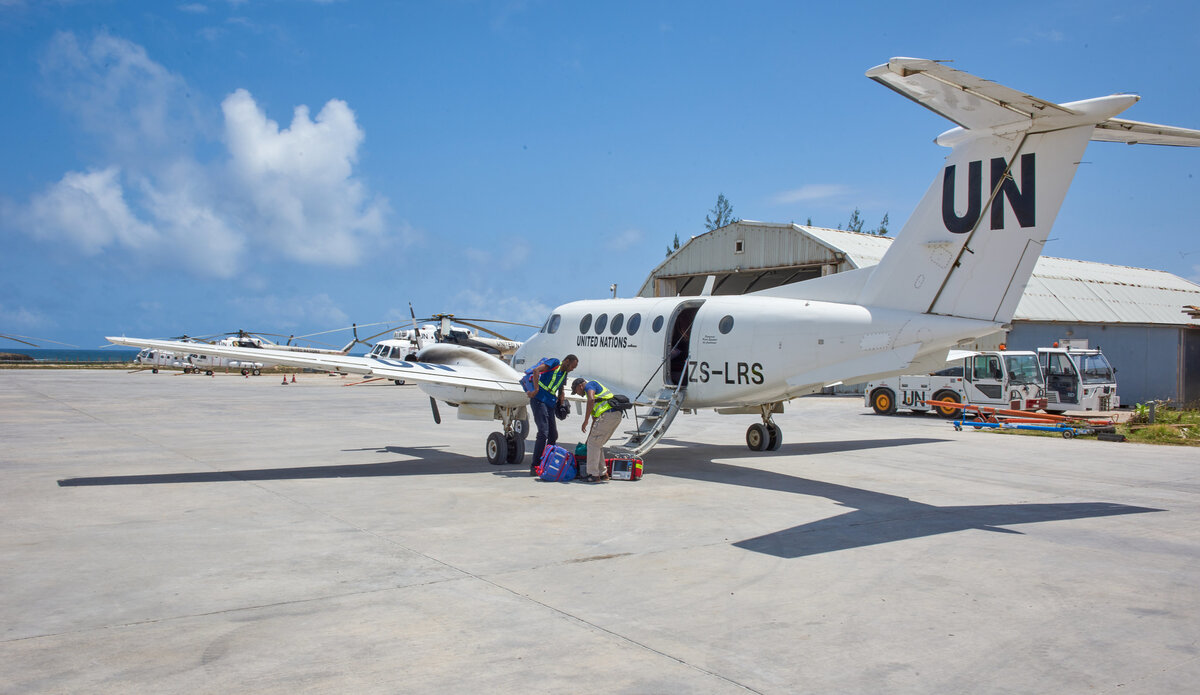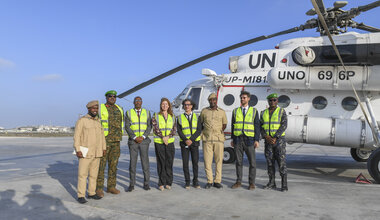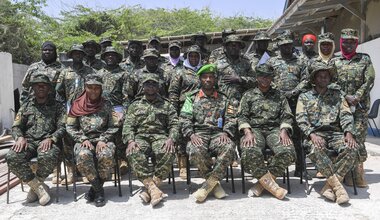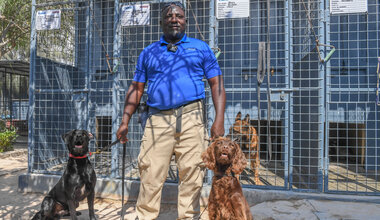UNSOS Bolsters Critical Aviation Services In Somalia
Mogadishu - Navigating Somalia's highly risky security environment with limited infrastructure for the aviation sector is critical. However, UNSOS has managed to provide air logistical support to its clientele in an efficient, cost-effective, and safe operation in the Horn of Africa country, says Dr. Silvanos Gwarinda, Chief of UNSOS
Joint Air Operations Centre in Mogadishu, Somalia. Aeromedical evacuations, life support logistics, troop rotations, special flights, and administrative flights place UNSOS at the core of air services. At the heart of its logistical support, UNSOS continues to meet the objectives of the
Federal Government of Somalia (FGS), Somali Special Forces (SSF), United Nations Assistance Mission in Somalia (UNSOM), African Union Transition Mission in Somalia (ATMIS), United Nations country teams, Troop Contributing Countries (TCC’s), International Civil Aviation Organization (ICAO), African Union (AU) and other UNSOS partners.
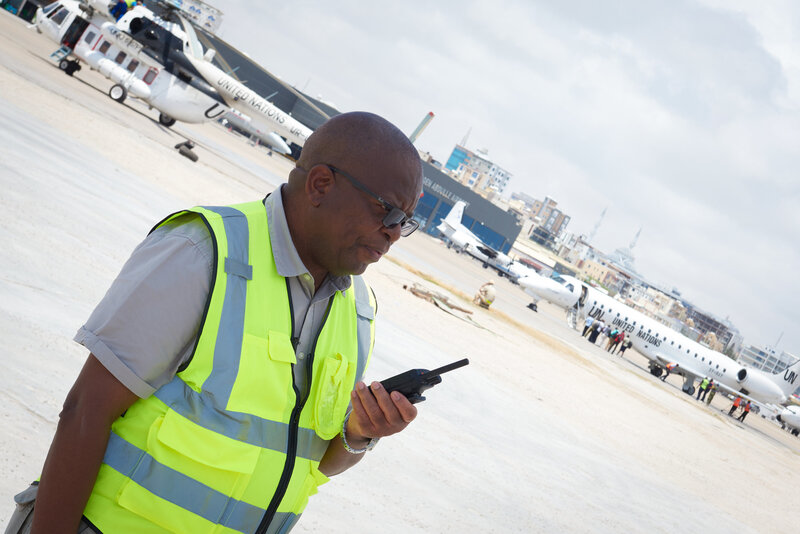
“We fly about 12,000 hours to 14,000 hours in a year. This represents more than 90 percent of the contracted hours. This is a high aircraft utilization level. We also airlifted roughly 50,000 passengers per year in 2021 compared to 2018, where we carried about 125 passengers,” says Gwarinda, referring to the statistics as an annual operational average.
UNSOS ensures that there is a centralized and decentralized tasking of air assets to keep the security agile, efficient, and effective. “We track all our flights from origin to destination, receiving position reports almost every 3 minutes. We are able to follow the flight profile of each of our flights every 3 minutes: determine the flight level, speed, direction, and the actual GPS location. Let us not forget that we have ATMIS and SSF troops at almost all the destinations we fly to-and therefore security buffer zones are always in place. This brings in huge security benefits to our operations,” he adds.
In the aviation sector, UNSOS has trained close to 200 FGS, SNA, and ATMIS staff in security, aeromedical evacuations, operator training, air operations, and air rescue and fire-fighting on-the-job training.

 UN
UN
